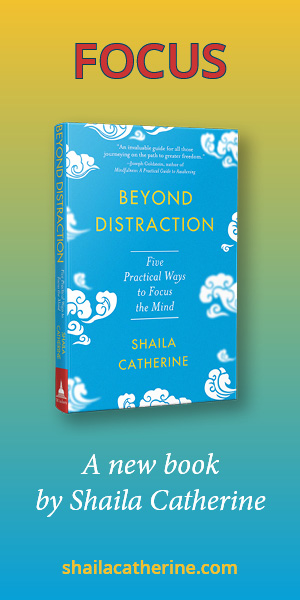Much Ado About Nothing
About the Show
Much Ado About Nothing
By William Shakespeare
Adapted by Mary Ann Rodgers
Directed by Lisa A. Tromovitch
Director’s Note – Much Ado About Nothing from Lisa A. Tromovitch
What a fun play! Shakespeare’s original Rom-Com, Much Ado blends comedy and romance, along with the tests and trials that plague lovers and fools. While the play is no doubt a comedy – it does have two wonderful clowns in it, and ends in the signature sign, a wedding – it is, like others of his plays, touched with sorrow. Based on all-too-familiar experiences with jealousy, gossip, and shifting gender-specific societal roles, things get, well, out of hand. Despite having worked on Shakespeare’s plays for over 20 years, I am still amazed at how the issues he was exploring over 400 years ago are still issues we wrestle with today.
The play’s two heroines represent two ways of being a woman in a patriarchal society. Hero, presumably Catholic, is smart, honest, fun-loving, and chaste. She appears happy to take on a traditional female role, supportive of her family, true to the moral teachings of her church, and looking forward to marrying. This choice, though, does not protect her from slander. Beatrice, on the other hand, has had a more complicated early life. Apparently, both her parents have passed away, and she lives with her Uncle and cousin Hero. She has a history with Benedick, a confirmed bachelor, to whom she gave her heart. Witty, well-educated, strong, and fun-loving, she anticipates a different path through life. Scholars note she “talks like a man,” using wordplay and banter in verbal duels with Benedick. Her choice does not protect her from being labeled a “shrew” both in the play and by writers from various eras. Yet Shakespeare presents these two characters as equally loved and valued by their family and friends, who accept them both. Way to go, William! There is even a little political jab made by Shakespeare: at the time, some debated whether women had souls. His stance is made quite clear in the Benedick-Beatrice exchange that ends with “as surely as I have a thought or a soul.”
The play’s title is famous for its multiple meanings. In Shakespeare’s day, the word “nothing” was pronounced the same way as “noting.” So, Much Ado About Nothing can mean both a lot being made out of nothing, actions taken based on untruths, and also much being made from noting, noticing, gossip, and misrepresentations. There is also sexual innuendo, known to Shakespeare’s patrons, suggesting much is being made of men wanting women. As we have a family-friendly script that would have been approved by the censors of the day, for the men to be satisfied, the play must end in marriages.
Besides the love couples, there is another special pair: the clowns Dogberry and Verges. These characters, based on the Italian commedia, are cleverly doubled in our production with Beatrice and Benedick, by associate artist Mary Ann Rodgers who did the adaptation. Dogberry and Verges have their own caring relationship as they strive to be productive and valued members of their society. They want nothing more than to do the right thing and be appreciated, loved, I would say. The wonderful irony set up by Shakespeare is that the educated, wealthy, and high-ranking members of society are easily duped, but the fools bring forward, through their commitment to simple honesty, the truth. Shakespeare valued honesty and allows his characters to voice that value.
Our costume designer, Callie Floor, found a wonderful reference point for our Dogberry, San Francisco’s Emperor Norton. A quick search on Wikipedia provides delightful insight into the mind and character of a man who imagines himself to be much more than he is.
The struggle for honesty and truth to be believed can be seen as an ongoing war, not only in the play but in our contemporary lives. Gossip, now compounded by social media and biased press, derails the truth at every turn. This struggle, woven deeply into the play, is mirrored in the war between the brothers that provides the backstory, and the witty “war between the sexes” played out by Beatrice and Benedick. Words like “wrestle” that reflect struggle are peppered throughout the script. Despite the light-hearted banter, there is an undercurrent of deceit being met with diligent attempts to reveal truth. That is the true course of all the characters who in the end “hope they serve God.”
Another theme to note is the struggle within ourselves to become better people. Don John says of himself “I am a plain-dealing villain.” His character is modeled after the devil character from the medieval morality plays. The textual hint is his description by one who knows him well, “… the devil my master.” His approach to self-actualization is contrasted with Benedick’s, who says “… happy are they that hear their detractions and can put them to mending.” Shakespeare encourages us to learn from our mistakes “and mend.”
We’ve had a lot of fun bringing a bit of ourselves and the Livermore Wine Region to this play, and the play to our audiences. I hope you enjoy our romp through this over 400-year-old masterpiece.
Characters in Order of Appearance
Leonato – Norman Gee*
Balthasar – Hans Probst
Beatrice – Sydney Schwindt
Hero – Anjoli Aguilar
Don Pedro – Nona Truong*
Benedick – Mark Vashro
Claudio – Hans Probst
Antonio – Terrance Smith
Don John – Anjoli Aguilar
Borachio – Terrance Smith
Margaret – Nona Truong*
Dogberry – Sydney Schwindt
Verges – Mark Vashro
Friar – Terrance Smith
Sexton – Norman Gee*
Ensemble – Marguerite Arbogast, Evan Carlson, Grace Guichard, Ella Lieberman, Ethan Smith
Settings
Mid-1800’s – Messina Vineyards, Messina, Sicily, Italy
Run time is approximately 2 hours and 20 minutes including a 15-minute intermission
No photography or recording devices of any kind allowed.
* Member of Actors Equity Association![]()
Dates and Tickets
Shakespeare’s Original Rom-Com
As one of Shakespeare’s most performed comedies, Much Ado About Nothing explores love and friendship, honor and deceit, and a couple of cases of crossed wires as newly-engaged Hero and Claudio play cupid to the constantly bickering Beatrice and Benedick. Can love conquer all or will it all be much ado about nothing?
Dates
Friday, July 14 (Preview & Family Night)
Saturday, July 15 (Opening & Benefit Night)
Sunday, July 16
Friday, July 21
Saturday, July 22
Sunday, July 23
Thursday, July 27
Friday, July 28
Saturday, July 29
Sunday, July 30
Thursday, August 3
Friday, August 4
Saturday, August 5
Sunday, August 6
To purchase tickets over the phone: call our offices at 925-443-2273 between the hours of 10:30 am and 5:00 pm Monday/Wednesday/Friday
Meet the Cast
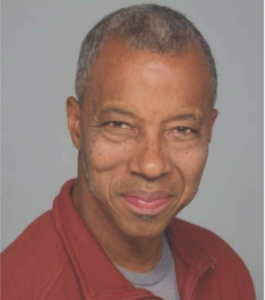
Norman Gee (Leonato/Sexton)*
Norman Gee delightedly returns to Livermore after the France tour of Word for Word’s HOME by George Saunders. Founder of Oakland Public Theater, a PlayGround Incubator company, Norman creates a ‘different kind of Black Theater”, expanding cultural notions to encompass often invisible roles of African-Americans. Look for The Baldwin Centennial Project, soon.
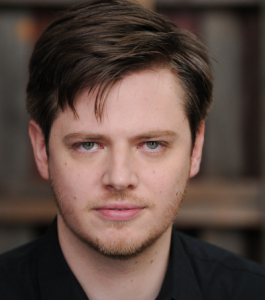
Hans Probst (Balthasar/Claudio)
Hans Probst studied drama at San Francisco State University and worked as a teaching artist at Tri-Valley Young Performers Academy. Some of his stage credits include A Christmas Carol at San Ramon Community Theater, Love and Information at SFSU, and Two Degrees at SPARC as part of their Science@Play series. He also acted in independent films, including This is War, X, and Truth in Numbers. In addition to acting, Hans works as a teaching artist and acting coach for SPARC and Berkeley Repertory Theatre.
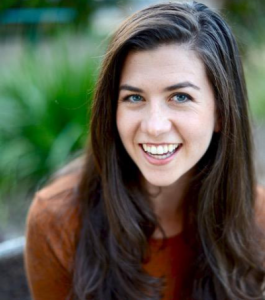
Sydney Schwindt (Beatrice/Dogberry)
Sydney Schwindt (she/her) is an actor, fight director, director, illustrator, and educator. She was last seen last summer in SPARC’s The 39 Steps and has acted and fight-directed for several other shows with the company. Most recently Sydney directed A Midsummer Night’s Dream for San Francisco Shakespeare Festival.

Anjoli Aguilar (Hero/Don John)
Anjoli Aguilar is grateful to perform in her first show with SPARC! She received her B.A. in Theatre from SFSU and adores studying Shakespeare’s works. She recently traveled to London to see performances at The Globe. Anjoli thanks her friends and family for their support. Con mucho cariño, Nonni!

Nona Truong (Don Pedro/Margaret)*
Nona Truong last appeared on SPARC’s stage in 2016 as Ariel in Lisa A. Tromovitch’s The Tempest and Henrietta in Jennifer Le Blanc’s adaptation of Persuasion, directed by Mary Ann Rodgers. She was most recently seen at the Old Globe playing Peter in Barry Edelstein’s Romeo and Juliet. She is grateful and excited to be rejoining her Livermore community. Nona holds an MFA from The Old Globe and University of San Diego Shiley Graduate Theatre Program.
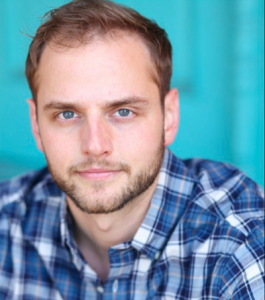
Mark Vashro (Benedick/Verges)
Mark Vashro is excited to be back on stage at SPARC. He last was on the planks in Livermore as Rodrigo in Michael Wayne Rice’s Othello. If you would like to learn about Mark’s other projects, or just reach out, please contact him at www.markvashro.com.

Terrance Smith (Antonio/Borachio/Friar)
Terrance Smith is a Bay Area native who has worked on stage, behind the camera, and as a voiceover artist. He’s toured nationally and performed overseas. His favorite Shakespeare credits include King Lear, Love’s Labour’s Lost, Richard III, and A Midsummer Night’s Dream. He holds a BA in Acting. Instagram: @yountsmith23
* Member of Actors Equity Association![]()
Production Team

Lisa A. Tromovitch (Director)
Lisa A. Tromovitch, Founding Artistic Director, is also a tenured professor in Media X at University of the Pacific. She began her career at The Old Globe Theater and has directed in six states. She is a Backstage West Garland Award and Indy Award winner for her direction of Amadeus at PCPA TheatreFest. Most recently she directed The Winter’s Tale, The Tempest, and her own adaptation of Cyrano de Bergerac for SPARC. Past President, Shakespeare Theatre Association. MFA, Southern Methodist University; BA magna cum laude, Dartmouth College; Phi Beta Kappa.

Mary Ann Rodgers (Adaptor)
Mary Ann Rodgers is an Associate Artist with SPARC where she has happily acted in or directed several shows including Persuasion, The Importance of Being Earnest, A Midsummer Night’s Dream, and more. Mary Ann most recently worked at Shotgun Players and Ross Valley Players. This summer Mary Ann played Annie Jump Canon is SPARC’s production of Silent Sky. She is married to actor/designer, and fellow Associate Artist, Malcolm Rodgers.
Audrey Brooks (Props Master)
Audrey Brooks (she/her), is a Teaching Artist and the current Program Manager at SPARC Theater. She received her BA in Theater from San Francisco State University (SFSU). Some of her favorite credits include acting in Godspell (Las Positas College), assistant directing Fools (TVYPA), and stage managing Life is a Cabernet (SPARC Theater).
Callie Floor (Costume Designer)**
Callie Floor returns after having designed SPARC’s productions The Comedy of Errors, Othello, Sense and Sensibility, and Persuasion. Recent credits include Home for Word for Word, Flying Dutchman for West Bay Opera, and currently Don Pasquale for Festival Napa Valley. She has a BFA from the University of Utah and a Higher Diploma in Theater Design from the Slade School of Fine Art, University College London
Grant Huberty (Sound Designer)
Grant Huberty, Associate Artist, is pleased to return for another great Shakespeare in the Vineyard season. In addition to sound design for theaters, schools, and church groups, Grant also designed and installed the in-the-round sound system for the festival when it was at Wente Vineyards.
Liora Jacob (Stage Manager)
Liora Jacob (she/her) is a Bay Area-based freelance stage manager and occasional assistant lighting designer. Favorite credits include Straight White Men with Florida Studio Theatre, Human Ounce with Central Works, A Small Fire with Shotgun Players, and Getting There with New Conservatory Theater Center.
Gregg Le Blanc (Associate Artist/Festival Photographer)
Gregg Le Blanc has helped capture SPARC’s magic over the years. You also might have seen him on stage in LSF’s Much Ado About Nothing! Gregg has a Master’s Degree Chemical Engineer from University of California Santa Barbara with a 2nd Year certificate from University of Edinburgh. For more photography follow @CumulusLight, and try liking www.Facebook.com/photogregger!
Evan Lopes (Lighting Designer)
Evan Lopes (he/him) is a Bay Area native who had been regularly involved in theatre since 2004. His day job is at a local minority-owned and operated business, VIP Audio Visual Company. Recent credits: Damn Yankees, The Music Man, Guys and Dolls (I Can Do That! Performing Arts Center).
Karen Riley (Scenic Carpenter/Tech Advisor)
Karen Riley has been with SPARC since 2008 working in a variety of technical positions. She spent several years as a student and then a volunteer learning technical theater through the Las Positas Collage Theater Program. She retired from LLNL in 2015 after almost 25 years of service.
Malcolm Rodgers (Stage and Set Designer)
Malcolm Rodgers is an Associate Artist with SPARC and was last seen on-stage as Clown #1 in The 39 Steps, Iago in Othello, and Sir Walter Elliot/Admiral Croft in Persuasion. Recent credits include production design for Michael Che-Shame the Devil on Netflix, Triumph of Love at Shotgun Players, and Native Gardens at Ross Valley Players. He has received three Emmy Awards for scenic and graphic design. As an actor, Malcolm has also performed with Custom Made Theatre, CCCT, Arabian Shakespeare, Napa Valley Shakespeare, and Ross Valley Players. Malcolm studied theater performance at PCPA, and stage design at San Francisco State University. www.bowmanrodgersdesign.com
Additional Staff
Eric Gantos – Scenic Carpenter
Mitchell Ost – Lighting Consultant
Cynthia Preciado – Costume Assistant
Elsa Friedmann – Tech/Crew
Leila Suess – Tech/Crew
Leja Ejury – Tech/Crew
Andrew Lim – Tech/Crew
Lei Helton – Tech/Crew
 ** Denotes a member of IATSE
** Denotes a member of IATSE
Apprentices & Interns
Highschool Interns
Arjun Bhatkhade
Piper Burnett
Abigail Ding
Pehnina Faataualofa
Jessica Goodman
Kathryn Young

Marguerite Arbogast (College Apprentice / Understudy)
Marguerite Arbogast (she/her) is an actor and theatermaker based in Minneapolis, MN, who recently graduated from the University of Minnesota with a BA in Performance Creation. Favorite roles include Olivia in Twelfth Night and Sophie in Mamma Mia!. Marguerite studied with Shakespeare and Company and graduated from Interlochen Arts Academy in 2018.

Evan Carlson (College Apprentice / Understudy)
Evan Carlson (he/him) is from Durham, North Carolina, and is a senior BFA Acting major at Illinois Wesleyan University. Recent credits include Life’s A Dream (McPherson Theatre), True West (Beckman Auditorium), and Are You Ok? Voices from Prisoners and their Families (EMJK Lab Theatre). He recently directed his original musical Water Polo & Love (Phoenix Theatre). Follow him @e.b.carlson
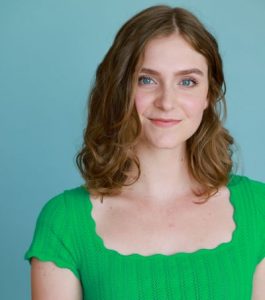
Grace Guichard (College Apprentice / Understudy)
Grace Guichard (she/her) is a Bay Area native who recently received her BFA in Acting and Minor in Philosophy from Otterbein University. Outside of acting, she regularly does improv at The Peoples Improv Theatre in NYC, her new home base. Recent Credits: Pirates of Penzance (OST), A Lie of the Mind (Otterbein), The Tempest (Otterbein). www.graceguichard.com

Kris Kiyoi (College Apprentice / Assistant Stage Manager)
Kris Kiyoi (he/him) is a Livermore Native currently attending Ithaca College for Stage Management. Kris has been an associate stage manager for The Language Archive and Sweat at Ithaca College and the stage manager for the IC Unbound dance team.
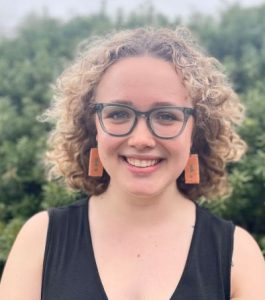
Ella Lieberman (College Apprentice / Assistant Stage Manager)
Ella Lieberman (she/they) originally hails from Portland, Oregon, and recently received her BA in Theatre Production from Sarah Lawrence College, where she also received the Greta Minsky Prize for Stage Management. Favorite credits include Hilma (The Tank), Almost Equal To (Sarah Lawrence College), and Gary (DownStage Theatre Co.).

Ethan Smith (College Apprentice / Understudy)
Ethan Smith (he/him) is from the suburbs of Chicago and recently completed his BFA in Acting at Illinois Wesleyan University. He has a certification from the SAFD as an actor-combatant in broadsword. Recent credits include Appropriate (Illinois Wesleyan), Life’s a Dream (Illinois Wesleyan), and Everybody Loves Opal (Barn III Dinner Theatre).
Dramaturgy
Dramaturgical Notes
By Lisa Tromovitch
Our script was adapted by Associate Artist Mary Ann Rodgers in that we’ve doubled the cast down to 7 actors, reassigning lines from lesser characters like Conrade and Ursula. We’ve deleted several passages that in our estimation most of our audience would need footnotes to understand. Shakespeare wrote plays with literary references to please the highly educated along with bawdy jokes to please the groundlings, and strong characters and storylines to please all of us in between. Scholars believe that most of his plays can be doubled down to about 9 actors as the scripts would be taken on tour with a small company during times of plague. We notice characters show up halfway through a play (Dogberry and Verges) while other characters appear to disappear (or at least have no lines in the second half). So, in the spirit of a company taking theater on the road, or to the vineyard, we had a lot of fun letting the actors play multiple roles.
Shakespeare’s company, The King’s Men, was all male. While there were female actors in Italy, and it was not actually against the law (despite popular belief) for women to be actors in England, it was greatly frowned upon. So, boys would play the women’s roles. In our production, we’re playing with two brothers, played by female actors, having a bit of a Napoleon Complex, doubling Don Pedro and Don John with the “short” Hero and Margaret, (who is presumably of about the same height, as she is mistaken for Hero.) I’m quite sure Shakespeare wouldn’t mind seeing two female actors taking on male roles.
These edits have an added benefit for outdoor production: the show is shorter than other productions, without losing any of the storyline.
In acknowledgment of our vineyard setting, we’ve changed the word “orchard” to “vineyard” and used wineries from Tuscany as visual reference for the set, designed by Associate Artist Malcolm Rodgers.
We’re setting the play in the mid-1800s. Then, as in Shakespeare’s day, Italy wasn’t fully unified, so the fact that a Spanish leader, Don Pedro of Aragon, would be fighting to regain control of Sicily using soldiers from Italian city-states, Padua and Florence, isn’t anachronistic. Spain did control Sicily during the Renaissance. The song known as “Here Comes the Bride” was written in 1850, so even that cultural reference works for our production.
That doesn’t mean we’ve avoided all anachronisms. Our actors play guitar, not the lute! Again, Shakespeare himself is known to have inserted contemporary Renaissance references to plays he set in an earlier time and a different country. It’s always about the story and what works for the audience.
While we based our script on contemporary editions, we did use the First Folio, as edited by Neil Freeman, for our research text. We made some lovely discoveries. In a scene when Benedick is trying to win a kiss from Beatrice, he uses the familiar “thou” and “thee.” All the while, Beatrice keeps an edge of formality to their relationship, using only the more formal “you.” Specially capitalized words like “Lady” remind us what it meant to be of a class of Ladies and Gentlemen, beyond just being female and male. There were responsibilities and expectations for those of that class. Unusual spaces in the middle of a verse line offered opportunities for different ways of looking at the relationships. Patrons may notice a “new reading” of a famous line when we’re using the oldest reading we could find, the First Folio reading.
Much Ado, probably written in 1598, is also interesting in that almost three-quarters of the play is written in prose. When characters move to verse, it is for a reason, a reason motivated by the character and their relationship to others in the scene. Many students of Shakespeare, (and those that peruse the Internet) are falsely told that nobles speak in verse and commoners speak in prose. This play is a clear example of the inaccuracy of that idea. Moving from prose to verse and back is motivated not solely by status, but by who the character is talking to, and what their emotional and intellectual connections to the dialogue require. Hearing the (uneducated) clown Dogberry attempt to mimic the educated upper class allows us to laugh not only at Dogberry’s malapropisms but also at the flowery attempt of the educated upper classes to impress with their verbal dexterity.
Everywhere you look in the text, there is a little gem, a theme reinforced, depth or laughter to enjoy. Much Ado About Nothing certainly has something for everyone, making it no surprise that it is one of Shakespeare’s most popular comedies.
Acknowledgements & Special Thanks
Acknowledgments
Livermore Valley Opera, Santa Clara University, Solano College Theatre, and University of the Pacific – Media X
Special Thanks
Jim Hartman, Joanne Martin, Kevin Baskin, Meredith Sarboraria, Natalia Custodio, Ronna Lagin, Shirey Brooks, and Trish & Dave Munro.
Usher services provided by National Charity League – Pleasanton Chapter.
Housing Hosts
Very Special Thanks to our Housing Hosts without whose generosity many of our artists could not have accepted our invitation to join us this summer.
Ann Brown & Steve Ketzler
Sue & Bob Carling
Jessie & Reggie Gaylord
Donna Heinle
Jean Moran & Eric Serdahl
Bonnie & Jim Schmidt
Mary & Don Sweeney
Board of Directors & Administrative Staff
Board of Directors
Bryan Balazs, Chair
Laura Batti
Tony Baylis
Apryl Chauhan
Ellen Goold, Secretary
Bob Koelle
Larry Lagin
Steve Lanza, Treasurer
Mary Sweeney
Lisa A. Tromovitch
Beth Trutner
Administrative Staff
Lisa A Tromovitch, Producing Artistic Director
Lindsey Schmeltzer, Managing Director
Audrey Brooks, Program Manager
Alycia Tumlin, Education Director
Leslie Martinson, Grant Writer
Laura Batti, Metier Marketing Communications, Graphic Design
Michael Wayne Rice, Resident Director
O U R S P O N S O R S
Individual



Festival




Lighting


